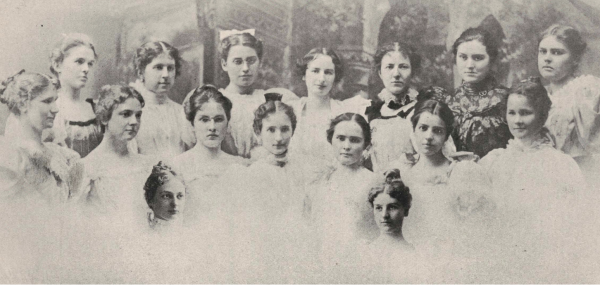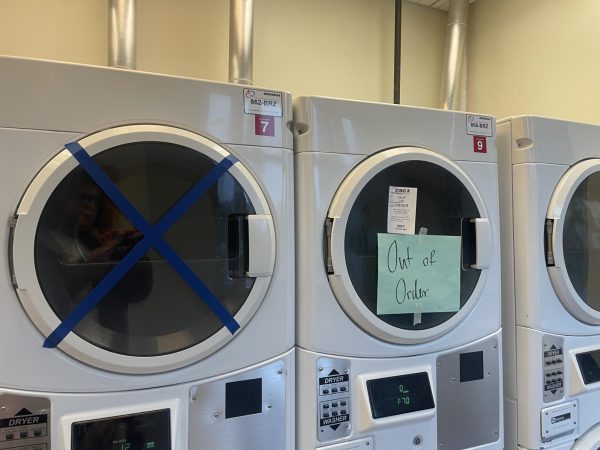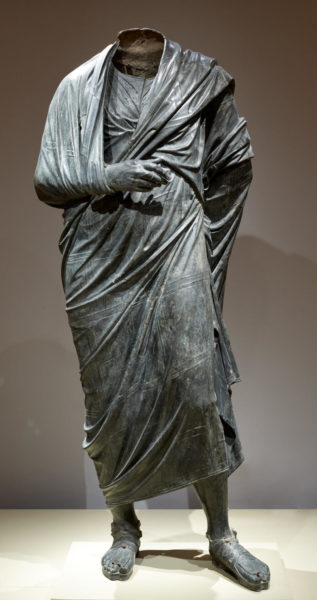Uncapped: SEC removes ban on student groups purchasing alcohol with Student Activity Fee money
After being debated in the Student Executive Council (SEC) and a committee created just for this issue, a bylaw against student organizations using the allocations made by SEC to purchase alcohol has been voted out by a margin of 10-3.
The chair of that committee, third-year student and Vice President of Recruitment for the Interfraternity Congress (IFC), Arjun Gopinath, is not a member of the SEC. Rather, he attends meetings because he finds it interesting to follow what the council is discussing.
Gopinath happened to be sitting in on a meeting when SEC began debating one of their bylaws. The bylaw states that money allocated by the SEC from the Student Activity Fee—a fee of about $177 paid by all students along with their tuition that is then allocated to student organizations—cannot be spent on alcohol.
For some present, there was immediate agreement that the rule had no place in the SEC’s constitution, but others were not so sure.
The SEC is an umbrella organization that covers eight umbrella organizations: the Class Officer Collective (COC), the IFC, the Panhellenic Council, the Residence Hall Association (RHA), the University Diversity Collaborative, the University Media Board (UMB), the University Program Board (UPB) and the Undergraduate Student Government (USG). It also includes off-the-top organizations Thwing Study Over, Homecoming, Springfest and Senior Week. The president and financial officer from each organization serve as SEC delegates.
The bylaw was first brought to the SEC’s attention in the group’s Sept. 24 meeting by COC President and Senior Week Chair Rachel Sosnowchik. USG President Chippy Kennedy immediately agreed that he, too, thought that SEC should look into the rule. A discussion followed in the Oct. 8 meeting, but it soon grew circular.
“I think half of them were against, half of them were for it, so they really didn’t know where they stood on it as SEC,” said Gopinath.
Because of that, the SEC considered putting the issue up for discussion by the SEC reform taskforce, but they decided that it does not neatly fit into that group’s mission. Instead they moved to create a committee to discuss the bylaw.
Aditi Chaudhri, the director of finance for UPB, suggested including representatives from COC, UPB and USG in the committee because those organizations are the most likely to potentially host events with alcohol and Greek Life because it currently has the most established policy on alcohol. The SEC then went around, and each organization nominated a member to serve on the committee.
“I happened to be at this meeting that day, so I was like, ‘Just nominate me. It’s kind of interesting,” said Gopinath. “I want to see where this goes.’”
After some discussion, the group voted to nominate Gopinath as chair because Greek Life does not stand to be strongly impacted by this policy. The other nominated members were Director of Student Activities & Leadership Colleen Barker-Williamson, Undergraduate Diversity Collaborative Vice President of Internal Affairs Precious Amoako, Director of Thwing Center Arlet Wright, Chaudhri, Kennedy, COC Executive Treasurer Daniel Kim and Greek Life Director Mark Starr.
In the committee’s discussions, one of the central issues was also one of the issues which had made the initial discussion so circular: the fairness (or lack thereof) of funding something which only those students over 21 years old can benefit from.
However members pointed out that there are many things funded through the SAF that do not reach the entire student body. After all that was the reasoning behind the bylaw when it was created several years ago.
“I know when our committee discussed it, we felt that a lot of SEC organizations have money that’s not accessible to the entirety of campus, so as long as too much money isn’t being spent on alcohol it shouldn’t be a problem,” said Chaudhri.
Another point that was raised was that student organizations might spend too much of their allocated money on alcohol if there were no limits or restrictions in place. This was not a source of serious concern for the committee; according to Chaudhri, all of the members recognized that “no one is going to be spending their entire budget on alcohol.”
The issue that the discussion came down to was whether it is the SEC’s place to decide how organizations may spend their allocations.
“It’s kind of just turning into, ‘papa bear gets to decide what everyone else does,’ and that’s not fair for the rest of the organizations,” said Chaudhri of the SEC’s role in deciding the usage of SAF funds.
The committee reached a compromise between complete freedom for all of the member organizations and the previous SAF prohibition. They decided that the umbrella organizations under the SEC should be allowed to purchase alcohol with their SAF allocations, but only if they create and implement risk-management policies for events with alcohol, to be submitted to the SEC by March 4, 2016.
The committee also felt that the umbrella organizations’ advisors would serve as a voice of reason for any organization that might be excessive in their alcohol purchases.
“Essentially what this bylaw did was remove the power from SEC in terms of deciding who gets to buy alcohol and who doesn’t and leave it to the individual organizations themselves, but that is contingent upon them coming up with risk management policies,” said Gopinath.
Although the removal of this bylaw goes into effect with the start of next semester, the delay of creating risk-management policies and learning about all of the applicable federal, state and local laws as well as university policies means that it might be considerably longer before organizations actually act on this changed policy.
For Senior Week, an event catering to an audience of primarily over-21-year-olds, this policy change will have less impact than might be expected. According to Sosnowchik, creating events that can include as many of the approximately 1,500 seniors as possible takes precedence over spending any of the budget on alcohol.
For COC events, though, Sosnowchik could see some potential implications in the future.
“I don’t think it’s gonna be a huge change,” said Sosnowchick. “But I’m excited because it does allow for the possibility of some more creative programming on our end, and it probably will end up affecting the senior class more so than other classes because the majority of students are able to drink, but I don’t think it’s going to be a huge, crazy difference.”

Aquene Kimmel, Director of Web and Multimedia, is a fourth-year English and French major. She is also Editor-in-Chief of The Athenian and a member of Pi...

















